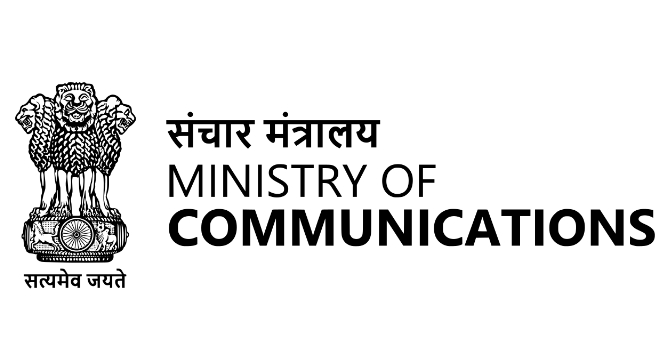India’s Ministry of Communications has put out a draft of proposed new telecoms laws for public consultation after having held earlier extensive dialogue with stakeholders, with an aim to develop a modern and future-ready legal framework in telecommunications.
In a statement on Thursday, the Ministry said that in July 2022, a consultation paper on ‘Need for a new legal framework governing Telecommunication in India’ was published and comments were invited. After studying the exhaustive feedback from various stakeholders and industry associations, the draft of the Indian Telecommunication Bill, 2022 has been prepared.
To facilitate further consultations, it has been put out in public domain so ordinary people could also study the content of the Bill, which has an explanatory note providing a brief overview, and giver more feedback. The documents can be accessed at: https://dot.gov.in/relatedlinks/indian-telecommunication-bill-2022.
With 117 crore subscribers, India is the world’s second largest telecommunication ecosystem. The telecommunication sector employs more than four million people and contributes about 8 percent of the country’s GDP, the documents related to the draft Bill state.
The existing regulatory framework for the telecommunication sector is based on the Indian Telegraph Act, 1885. The nature of telecommunication, its usage and technologies have undergone a massive change since the era of “telegraph”. The world stopped using “telegraph” in 2013.
In the era of new technologies such as 4G and 5G, Internet of Things, Industry 4.0, M2M Communications, Mobile Edge Computing, etc.— all creating new opportunities for India’s socio-economic growth — the country needed a legal framework attuned to the realities of the 21st century.
Dwelling on the liberalisation of the telecoms sector in the past eight years, the Bill looks at further initiatives to make contemporary the rules, including those like right of way (RoW), spectrum management, mergers and acquisitions and the simplification of the licensing regime of telecom services, which also include those related to broadcasting.
For example, the Bill recognises that spectrum is a valuable and inexhaustible natural resource, which has an element of public good. Therefore, it is vital to ensure efficient use and management of spectrum.
It describes the spectrum as similar to atma (soul), which is ajar (one who doesn’t grow old) and amar (immortal or deathless) as described in Bhagwad Gita. Like the atma or the soul, the spectrum too does not have any physical form, yet it is omnipresent.
“The Government has also committed huge amounts for digital inclusion. Providing high quality connectivity in unconnected areas, revival of BSNL, taking optical fiber to all gram panchayats (village administrations), developing India’s own telecom technology stack, and developing telecom manufacturing ecosystem, demonstrate the government’s commitment to digital inclusion.
“It is in this context we have taken up the initiative to restructure the legal and regulatory framework for the telecommunications sector,” an explanatory note attached to the draft Bill stated.
Some of the key themes that emerged after earlier consultation and which went into the drafting of the Bill, include the following:
- Recognition and acknowledgement of the need for a new legal framework that is future-ready.
- The need for updating the nomenclature and definitions of relevant terms in the telecommunication legal framework.
- The role that a strong legal framework can play in ensuring steady rollout of new telecommunication technologies.
- Need for legal certainty regarding spectrum management including issues relating to the use, allocation, and assignment, based on the underlying principle that spectrum is a natural resource that needs to be assigned in a manner that best subserves the common good.
- Alignment of telecommunication standards with international standards and best practices.
- Importance of cybersecurity, national security and public safety concerns, while ensuring constitutional and procedural safeguards.
- Need for a distinctive insolvency framework that allows continuity of provision of telecommunication services, so long as the licensee pays all dues.
- Need for rationalization of penalty framework, providing for specific penalties that are clearly linked with the nature of breach and gravity of the offence.
The preamble of the Bill recognises that telecommunication is a key driver of socio-economic development. It specifies that telecommunication infrastructure and telecommunication networks are important parts of public infrastructure. It emphasizes the need to ensure availability of affordable, reliable, secure and universal telecommunication services.
The Bill aims to consolidate and amend the existing laws governing provision, development, expansion and operation of telecommunication services, telecommunication networks and telecommunication infrastructure and assignment of spectrum.
The term “telecommunication services” has been defined to include broadcasting services, electronic mail, voice mail, voice, video and data communication services, audiotex services, videotex services, fixed and mobile services, internet and broadband services, satellite based communication services, internet-based communication services, in-flight and maritime connectivity services, interpersonal communications services, machine to machine communication services, over-the-top (OTT) communication services, which is made available to users by telecommunication.
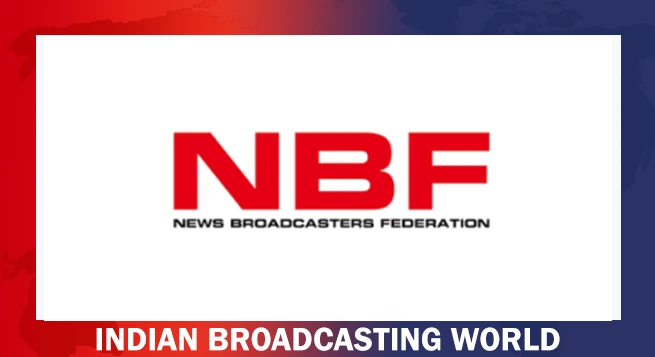 NBF issues advisory to member news channels on Pak guests
NBF issues advisory to member news channels on Pak guests 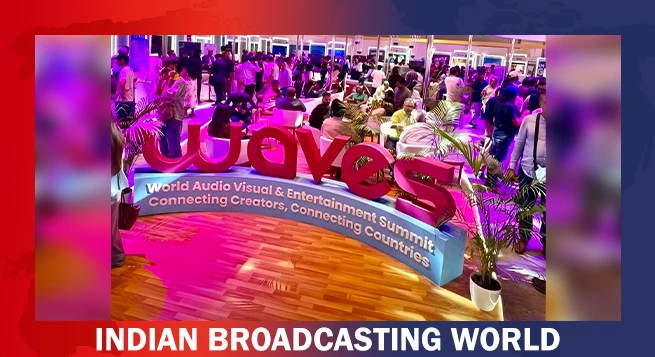 WAVES 1st edition right mix of M&E reality-check, biz, glamour
WAVES 1st edition right mix of M&E reality-check, biz, glamour 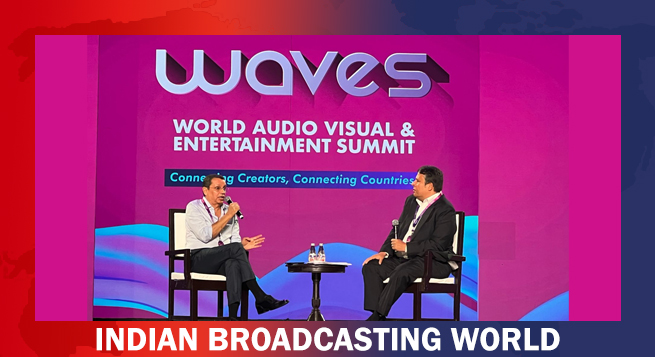 Uday Shankar upbeat on Indian M&E sector; stresses on need for local focus
Uday Shankar upbeat on Indian M&E sector; stresses on need for local focus 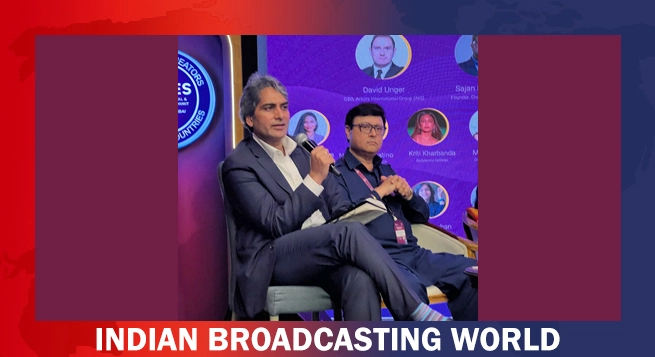 Sudhir Chaudhary announces new show for DD News, says “Good content still has a place” at WAVES 2025
Sudhir Chaudhary announces new show for DD News, says “Good content still has a place” at WAVES 2025 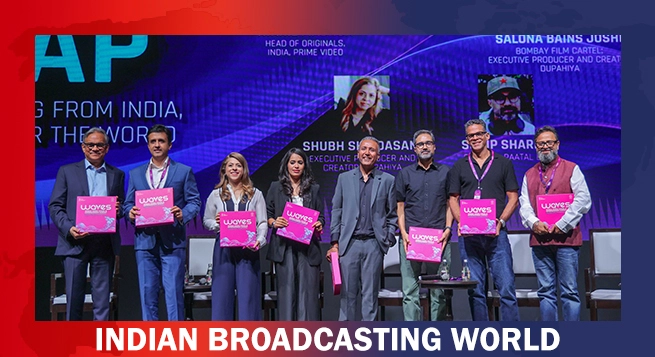 Indian creators aim for global impact, say streaming is redefining storytelling
Indian creators aim for global impact, say streaming is redefining storytelling 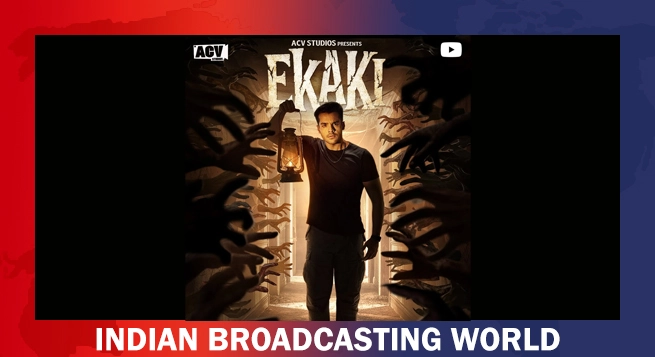 Ashish Chanchlani unveils poster for ‘Ekaki’
Ashish Chanchlani unveils poster for ‘Ekaki’ 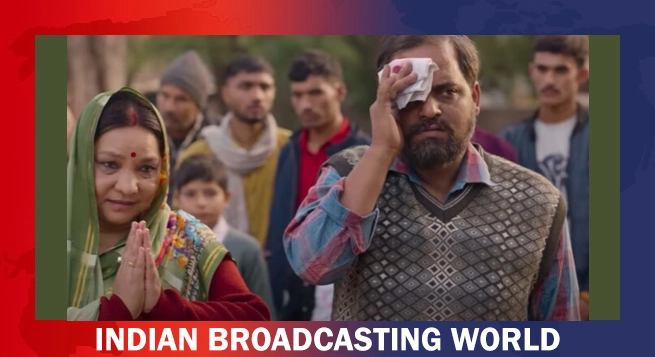 ‘Panchayat’ S4 teaser hints at fierce election showdown
‘Panchayat’ S4 teaser hints at fierce election showdown 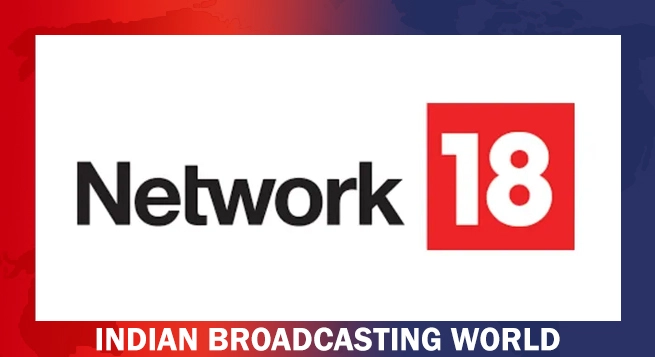 Network18 surges ahead of Times Internet
Network18 surges ahead of Times Internet 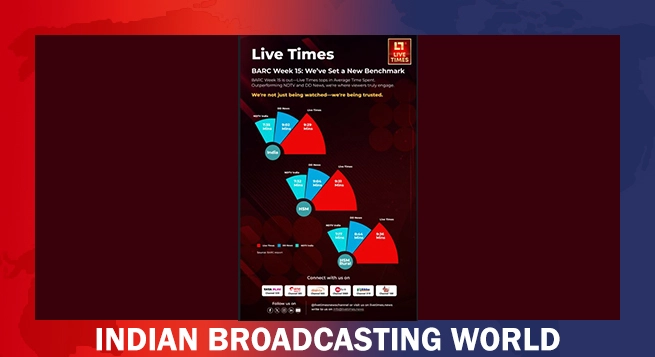 Live Times tops NDTV, DD News in viewer engagement
Live Times tops NDTV, DD News in viewer engagement 


